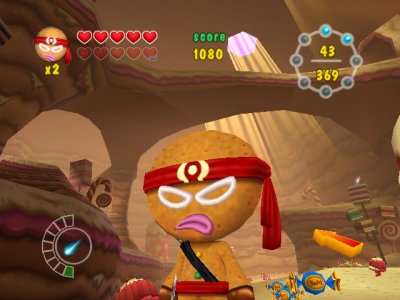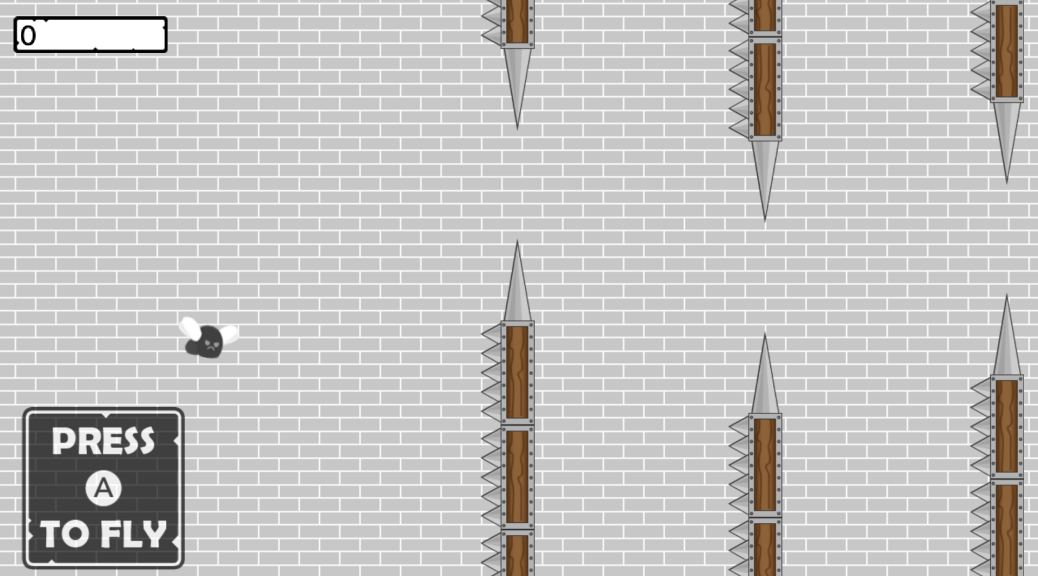How shovelware has risen in the modern gaming age.
Just look at this trailer. Look at it.
At its best, this is just another bad game on a long list of bad games. At anything other than its best, this “game” represents one of the biggest problems in gaming today. It is, in my opinion, worse than always-online DRM, worse than the Gamergate controversy, and worse than female objectification in video game culture. This, my friends, is Meme Run, the latest piece of shovelware (about) to hit the Wii U eShop, one that really offends me as a gamer more than it should.
The definition of the term “shovelware” has changed over the years. It first came to widespread use in the 1990s with the rise of CD-ROMs, when software developers would “shovel” old programs onto the new format without really doing anything else. The modern day equivalent would be Ubisoft porting Assassin’s Creed to PC without changing any of the button commands – but I digress. Oftentimes, these shovelware titles would consist of a collection of smaller, inferior titles, likely because CD-ROMs had much more storage space than was available on previous formats. It was clearly a situation of quantity over quality.
Today, shovelware carries a slightly different meaning. Although no doubt present in the early days of gaming, the rise of the digital marketplace has allowed some developers to pump out smaller titles on an unbelievably frequent basis – as in some of these guys are able to consistently push out more than one game per week. Needless to say, most of these games are complete garbage; the only reason these companies are still alive is that they thrive on flooding the market with a surplus of titles, and making just a few bucks on each while spending as little as possible on actually developing the product.

Wow this looks fun...
There are some well-known examples of shovelware “factories” that exist today. During the Wii era, British developer Data Design Interactive infamously became known for their involvement with such masterpieces as Ninjabread Man, Anubis II, and Trixie in Toyland, all three of which were remarkably released within a span of one month, and were essentially the same game reskinned. Last month, Jim Sterling, who has long criticized Steam as a PC gaming platform for being a dumping ground for shovelware rubbish, published a video about the now easily recognizable publisher Strategy First, a company that released last month, and I kid you not, ten different games. Ten games! Not even Activision, who usually gets the short end of the stick regarding public perception on recycled content, can even get anywhere near to that number.
You may be wondering why I use the word “cancer” in the title of this blog post. Some may see it as some lame attempt at click-bait or an ignorant use of a rather serious condition that millions of people suffer from every day (and if you do see it as one of those two, I apologize). Cancer, however, serves as a rather apt analogy for how shovelware can become a problem, and why I believe it to be as serious as it is. You see, cancer begins as a small, isolated condition. If approached the right way, it can be eradicated, removed completely, and never to be heard of again. However, give it time and it will grow, insofar as it will begin to dominate its host and eventually take it over, practically killing it.
If all this sounds familiar, you probably are (or were) a frequent patron to the iOS App Store. I was there when the App Store first launched, and things like in-app purchases and micro-transactions were unheard of. Today, almost every app has these things built in, and software publishers are dumping all sorts of unplayable trash into the storefront every day. Even the game creators that were once on the forefront of gaming can no longer be trusted with the App Store market; Square-Enix’s Final Fantasy: All the Bravest is a virtual screensaver that you must pay $13 in order to access all of its content. At this point in time, the App Store is a complete garbage dump that was once actually a breeding ground for unique and innovative experiences. Today, it is a dead marketplace for games.

Remember Rolando?
What can be done about this issue? Nintendo has tried to curb shovelware with their WiiWare service on Wii. The online store had several controversial rules set in place in order to prevent shovelware – which was at that point widespread across the retail space – from reaching the digital marketplace. One such rule was the requirement that all WiiWare developers would have to be working out of a corporate office; it was implemented so that 20-year-olds would not be making ports of flash games out of their basements. The second was a sales threshold that all games must exceed in order for the developer to be paid. These draconian measures have since been lifted with the subsequent launches of the Nintendo eShop on 3DS and Wii U, but while many see this as a definite improvement, it has allowed games like The Letter, Spikey Walls, and Meme Run to exist on the newer platforms.
I do want to take a moment and talk a bit about Meme Run specifically. The guy developing the game, Jordan Schuetz, is twenty years old, and he is collaborating with his 14-year-old brother to create this game and release it on Wii U. I think it is cool that there are younger developers out there creating games for consoles, but let us face the facts first: this game was conceived as a joke, developed hastily on pocket change, and is very clearly and obviously poor in design. I have made games when I was fourteen, and while at the time they seemed relatively impressive, looking back at Hit-O-Drum Bowser Mix now I can tell you about a thousand things wrong with it. I hate being that guy, but Mr. Schuetz is clearly not a game developer, at least not right now; he is a hobbyist.
There is nothing inherently wrong with being a hobbyist, but when developers like Mr. Schuetz and RCMADIAX (creators of Blok Drop U and Spikey Walls) release low-budget crap like this in the eShop, it just gives other developers the impression that it is okay to release these types of games on those platforms, and with increasing frequency. Hell, Spikey Walls is itself supposed to be some sort of social commentary on shovelware (the developers specifically mention The Letter and Mr. Schuetz’s other game, IQ Test), but it just ends up being another piece of shovelware in and of itself. Give me a break. This story practically write itself. There literally could not be a better illustration of what I am trying to say here.

Like, come on guys...
In an ideal world, shovelware would not exist. Unfortunately, it does, and with our modern age of digital distribution, it will only get worse. Some do not believe that we can do anything about this issue other than raise consumer awareness and avoid these games altogether. Others want platform holders to filter through software submissions as some sort of quality control. Either way, if we want our medium to be taken seriously, this stuff is certainly not doing us any favors.
So what do you think? How can we cure the problem of shovelware? Or is it a necessary evil that we must learn to live with? Sound off in the comments below!
![Amazing Spider-Man Finale Features New [SPOILER] Costume](../../../../../../assets1.ignimgs.com/2018/06/01/untitled-br-1527892808294_small.jpg)